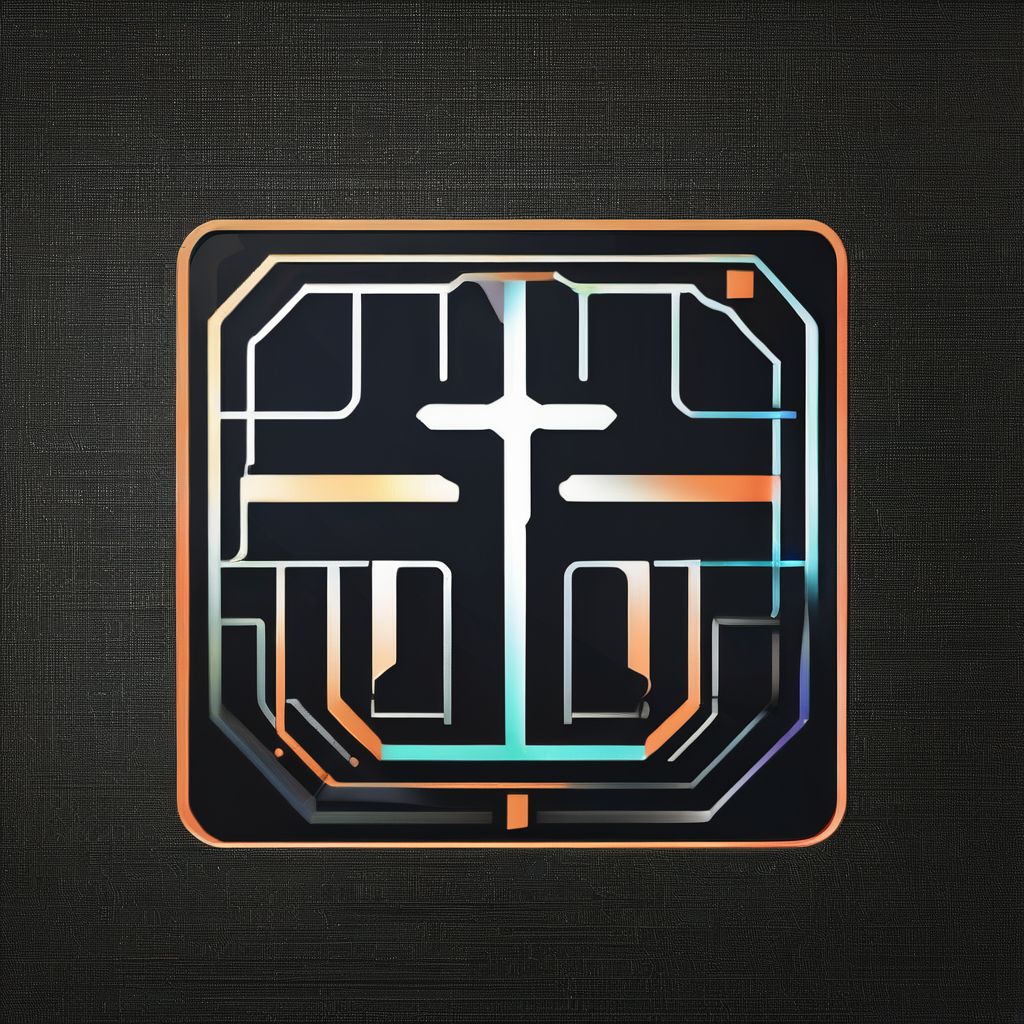Unlocking the Future: How Blockchain Technology Revolutionizes Secure Transactions in Gaming
The gaming industry has long been a hub of innovation, but the integration of blockchain technology is poised to transform it in ways that were previously unimaginable. At the heart of this revolution are secure transactions, which are crucial for building trust and enhancing the gaming experience. Here’s a deep dive into how blockchain technology is reshaping the gaming landscape.
The Need for Secure Transactions in Gaming
In traditional gaming, transactions are often centralized, meaning they are controlled by a single entity, usually the game developer or publisher. This centralization can lead to several issues, including the risk of fraud, data tampering, and a lack of transparency. For instance, players may find their in-game assets or profiles compromised due to security breaches or unfair practices by the game developers.
This might interest you : Mastering the art of transition: essential tips for effortlessly switching between vr and classic gaming experiences
| Traditional Gaming | Blockchain Gaming |
|
|----------------------------|
| Centralized control | Decentralized control |
| Risk of fraud and tampering| Secure and transparent |
| Limited visibility | Full transaction visibility|
| No ownership of assets | Player ownership of assets |
How Blockchain Technology Enhances Security
Blockchain technology offers a robust solution to these problems by providing a secure, transparent, and immutable ledger for all transactions. Here are some key ways blockchain enhances security in gaming:
Secure and Transparent Transactions
Blockchain ensures that every transaction is recorded on a public ledger, making it transparent and tamper-proof. This means that players can trust that their transactions are secure and that there is no risk of double-spending or fraud[1].
Topic to read : Revolutionizing multiplayer survival games: how ai transforms player engagement and experience
Enhanced Security Through Encryption
Blockchain uses advanced encryption systems such as secure messaging and two-factor authentication to protect sensitive data. This additional layer of security safeguards player information, game data, and user transactions from being hacked or tampered with[1].
Verification and Legitimacy
Blockchain gaming platforms verify all transactions and interactions between different parties, ensuring that they are legitimate and preventing fraud. Each transaction is recorded, guaranteeing that no individual or party is paid twice for the same service or goods[1].
The Role of NFTs and Crypto in Blockchain Gaming
Non-Fungible Tokens (NFTs) and cryptocurrencies are integral components of blockchain gaming, offering new avenues for monetization, engagement, and ownership.
NFTs: Ownership of Unique Digital Assets
NFTs use blockchain to verify the ownership of unique digital assets. In games, NFTs can represent rare in-game collectibles, characters, or even virtual real estate. Players can buy, sell, and trade these NFTs through peer-to-peer marketplaces, giving them real-world value[2].
Cryptocurrencies: Streamlining Financial Transactions
Cryptocurrencies such as Bitcoin and Ethereum are revolutionizing the way financial transactions are conducted in games. They offer instant, secure, and low-cost transactions, eliminating the need for traditional banking services. Players can earn cryptocurrency rewards through active participation and exchange them across various gaming platforms[2][3].
Decentralized Autonomous Organizations (DAOs) in Gaming
DAOs are another innovation enabled by blockchain technology that is reshaping the gaming industry. Here’s how they work:
Player-Driven Development
DAOs provide a structured framework that allows token holders to have a say in the future of decentralized game projects. This means that players can participate in formal proposal processes, giving them direct input over the games they play and collectively own at the blockchain level[2].
Transparent Game Economies
DAOs facilitate transparent game economies by decentralizing creative direction among empowered communities. This approach eliminates the misaligned incentives that often divide game studios and their audiences, ensuring that the development cycle is more aligned with player preferences[2].
The Future of Blockchain Gaming
The future of blockchain gaming looks incredibly promising, with several trends and innovations on the horizon.
Web3 Gaming: A New Era of Ownership and Decision-Making
Web3 gaming is set to redefine the gaming ecosystem by offering players ownership of game assets and the right to decision-making. This shift will move control away from a single central authority, empowering players and creating a more inclusive gaming environment[1].
Integration with AR and VR
The integration of blockchain technology with augmented reality (AR) and virtual reality (VR) is expected to enhance gaming experiences exponentially. AR and VR can create immersive gaming worlds powered by virtual economies and NFT marketplaces, offering players a more engaging and interactive experience[2].
Practical Insights and Actionable Advice for Developers
For developers looking to leverage blockchain technology, here are some practical insights and actionable advice:
Embrace Decentralization
Decentralization is key to the success of blockchain gaming. Developers should focus on creating decentralized platforms that give players control over their assets and experiences.
Use Smart Contracts
Smart contracts can automate various processes in games, such as the distribution of rewards or the execution of in-game transactions. They ensure transparency and fairness, making the gaming experience more trustworthy[5].
Foster Community Engagement
DAOs and community-driven development models can help foster a more engaged and loyal player base. Developers should encourage player participation in decision-making processes to build a stronger community around their games.
Financial Implications and Investment Trends
The financial implications of blockchain gaming are significant, with substantial investments pouring into the sector.
Investment Trends
In Q3 2024, blockchain gaming attracted significant investments, with prominent VC firms like Andreessen Horowitz, Bitkraft, and Play Ventures leading the charge. The emphasis on seed-stage funding indicates a strong belief in the future potential of emerging gaming technologies[4].
Market Growth
The market cap of blockchain gaming is expected to reach $90 billion by 2030, according to Techreport. This growth is driven by the increasing adoption of NFTs, cryptocurrencies, and other blockchain-based innovations in the gaming industry[2].
Blockchain technology is revolutionizing the gaming industry by providing secure, transparent, and decentralized transactions. As the industry continues to evolve, we can expect to see more games and platforms leveraging blockchain to enhance the gaming experience.
“`plaintext
Key Benefits of Blockchain in Gaming
- Secure and Transparent Transactions: Blockchain ensures that all transactions are secure, transparent, and tamper-proof.
- Enhanced Security: Blockchain uses advanced encryption systems to protect sensitive data.
- Improved User Experience: Blockchain provides a more efficient, secure, and transparent way to engage in digital transactions.
- Ownership of Digital Assets: Players have true ownership of their in-game assets through NFTs.
- Decentralized Finance: Blockchain enables decentralized financial transactions, reducing the need for traditional banking services.
- Community Engagement: DAOs allow players to participate in decision-making processes, fostering a more engaged community.
Quotes from Industry Experts
- “Blockchain gaming is the ultimate future that will redefine the gaming ecosystem by offering players ownership of gaming assets and the right to decision-making.” – Appinventiv[1]
- “The integration of blockchain technology with AR and VR is expected to enhance gaming experiences exponentially.” – Cubix[2]
- “Blockchain technology offers unmatched security and transparency for online gaming, protecting players’ funds from cyber threats.” – Fintech News[3]
Table: Comparison of Traditional and Blockchain Gaming
| Feature | Traditional Gaming | Blockchain Gaming |
|---|---|---|
| Transaction Security | Centralized, risk of fraud | Decentralized, secure, and transparent |
| Ownership of Assets | No ownership | Player ownership |
| Transaction Speed | Slow | Instant |
| Transaction Costs | High | Low |
| Community Engagement | Limited | High |
| Use of NFTs | No | Yes |
| Use of Cryptocurrencies | No | Yes |
As we move forward, it’s clear that blockchain technology will continue to play a pivotal role in shaping the future of the gaming industry. With its promise of secure transactions, decentralized finance, and enhanced user experiences, blockchain is set to unlock new possibilities for both players and developers alike.











